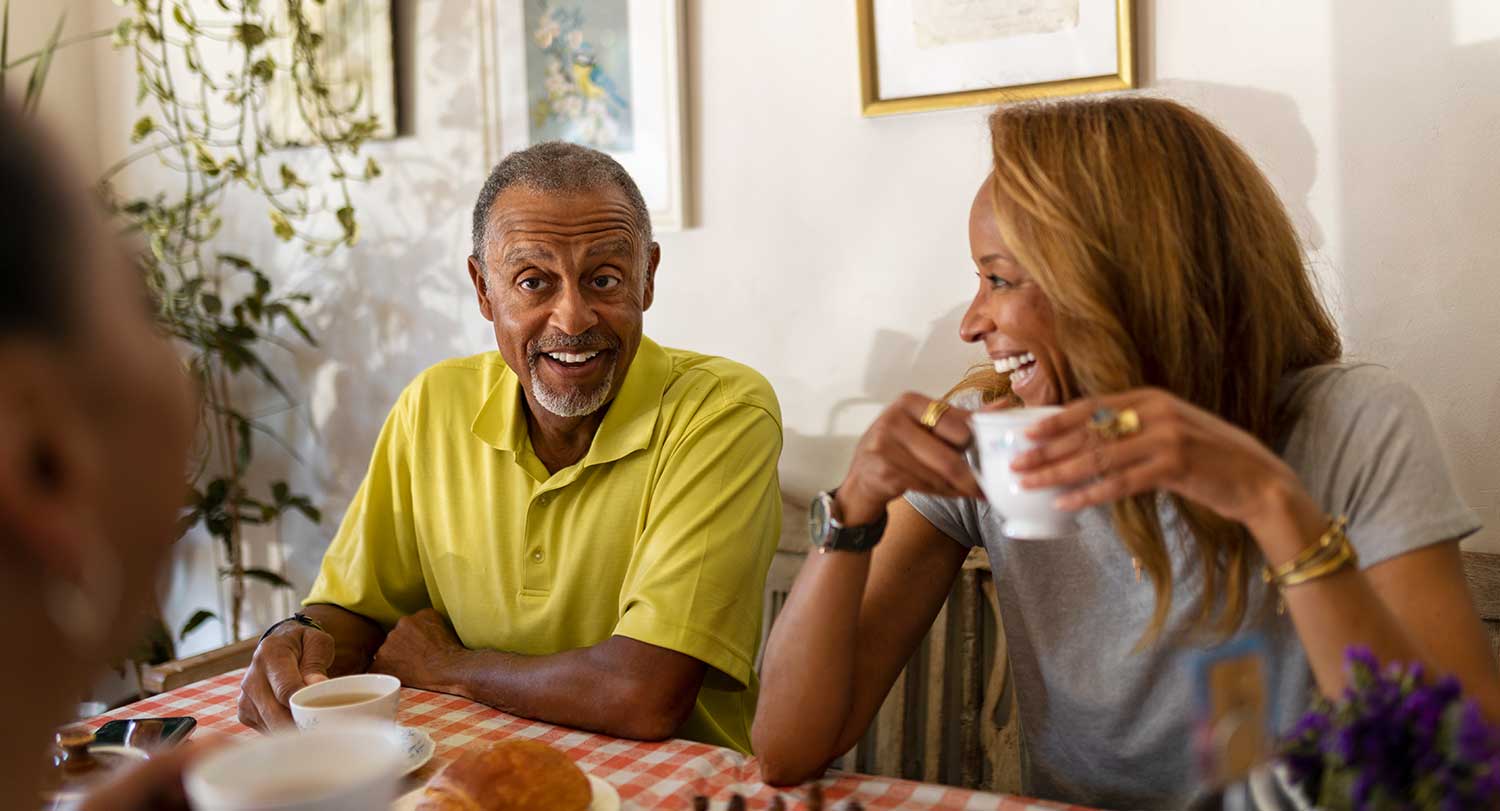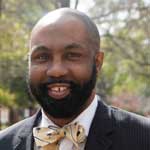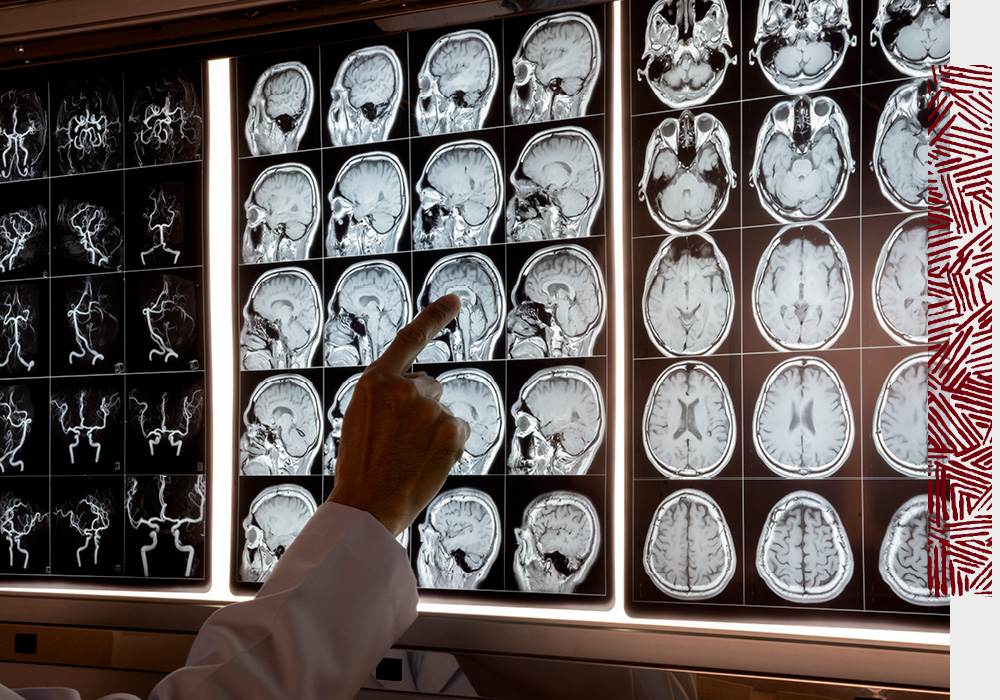
Aging in a familiar space and environment helps foster a sense of autonomy and independence, says Shaun Owens, an associate professor in the College of Social Work.
His research focuses on how technology can be used to support older adults, their caregivers and care partners to promote healthy aging in place, potentially delaying or reducing the need for expensive assisted living or institutionalized care.
Owens has received a four-year grant from the National Institute on Aging focused on technology to support healthy aging, particularly for African Americans in rural areas who may have limited access to specialty and long-term care. The Research and Entrepreneurial Development Immersion grant is a unique effort to bridge the gap between research and entrepreneurship.
“It’s not only about helping older adults to remain in their homes but also maintaining connections in their community, daily routines and familiar relationships,” Owens says. “This is why it is important that we as academics not only develop interventions to support aging in place but ensure these products reach people outside the walls of our labs.”
The REDI grant enables researchers to gain the expertise to meet that goal, he says.
“It will also provide Shaun with the knowledge, skills and opportunities to network with other tech companies in bringing innovative aging-related technologies to South Carolina,” says Sue Levkoff, director of SmartSTATE SeniorSMART Center of Economic Excellence at the University of South Carolina
The project involves installing the ORCATECH Technology Platform remote monitoring system in 10 households to assess its effectiveness, feasibility and acceptance among rural, lower-income African Americans living with cognitive decline and their care partners. According to the Alzheimer’s Association, older Black Americans are twice as likely as older whites to have Alzheimer's disease or a related dementia and are less likely to have access to care.
The system includes sensors to track daily activities, such as movement and walking speed, medication adherence and sleep quality with the goal of creating digital biomarkers for cognitive decline. No cameras are installed, so privacy concerns are minimized. It differs from medical alert devices because it monitors multiple aspects of a person's life to provide more data-informed and preventative care, improving overall health outcomes.

Understanding the impact of remote-monitoring technology on this population can guide the development of tailored aging-in-place interventions and allow the ability to connect clients to clinicians, other care partners and caregivers.
Owens believes remote monitoring can be revolutionary for keeping individuals with early-stage cognitive decline in their homes by alerting caregivers or clinicians to potential issues and by helping to address the disparity in access to care.
“Understanding the impact of remote-monitoring technology on this population can guide the development of tailored aging-in-place interventions and allow the ability to connect clients to clinicians, other care partners and caregivers,” he says.
Owens has been working with community organizations that serve older populations to identify participants who have early-stage dementia. One group will learn about the remote-monitoring equipment, followed by interviews about their perceptions. A second group of 10 households will have the monitoring system installed for a period of 18 months, after which participants will be interviewed about its acceptability and usability. The study also aims to analyze the cost to deploy the system and maintain long-term monitoring.
A unique opportunity
In addition to advancing his research with age-related dementia, Owens is motivated by the unique training opportunity the grant provides.
“The entrepreneurship focus of the grant is exciting to translate our research outside of the institution through innovation and potentially commercially viable products and services,” he says. “I have excellent academic and entrepreneurship mentors to guide this training experience.”
Owens’s core mentors include Levkoff, a social work professor; Jeffrey Kaye, a professor of neurology and bioengineering at Oregon Health and Science University and director of ORCATECH (Oregon Center for Aging and Technology); statistician Jia Jia Zhang, a professor of epidemiology and biostatistics at USC’s Arnold School of Public Health; and entrepreneur Larry Frye, CEO and co-owner of Life Analytics Inc. (remote monitoring system).
“Entrepreneurship is a learned skill,” Frye says. “I have worked with a number of research health care institutions who are striving to create new and productive innovations.”
If the research identifies an innovative solution for an existing problem, the next step is to begin the commercialization process, assessing the potential market and economic potential for the product or service.
“If the academic-based team moves to this stage, then the real commercialization fun begins,” Frye says. “You strive to create a company around the innovation, building a broad-based team beyond academics and raising money to sustain the efforts.”
For example, Frye licensed the ORCATECH platform from Oregon Health and Science University to form his company Life Analytics Inc. and build a commercial platform of remote patient monitoring of chronic diseases. Through a three-year grant from National Institutes of Health and the National Institute for Aging, the company started with Alzheimer’s disease, which encompasses Owens’s project.
Continuation of research
Owens’s current grant enables him to extend his aging-in-place research through the Healthy Aging Research and Technology Lab and the SmartHOME SeniorSMART Center for Economic Excellence. The HART lab’s cross-disciplinary research includes collaborations across the university toward the development of technologies for health communication, health decision-making and management, and healthy aging.
As part of a previous study, Owens installed the Life Analytics Monitoring Platform in the homes of healthy African Americans in rural South Carolina for six months.
“This preliminary research allowed me to get feedback from people who were not experiencing cognitive decline about their perceptions of the technology and any recommendations on how to improve it,” he says.
Owens’s work will provide the foundation for future installations in homes that are socio-economically disadvantaged or underserved, targeting patients dealing with dementia-related diseases at home, according to Frye.
Skills in entrepreneurship are essential to the mission of SeniorSmart, SmartHOME and other SmartState programs, which prioritize the transformation of innovations into spin-off companies that drive economic growth, Levkoff says. Owens’s long-term commitment to translate research into real-world applications has been a core component of the Smart Home Center, she adds, and has been recognized by his receiving the extremely competitive Research and Entrepreneurial Development Immersion grant.
“Shaun’s interest in research on aging and entrepreneurship to develop solutions that allow individuals to age in place in their homes and communities is linked to his passion for ‘doing good’ by improving the lives of African American older adults,” Levkoff says. “He brings a deep commitment and exceptional leadership skills to this innovative aging project.”
